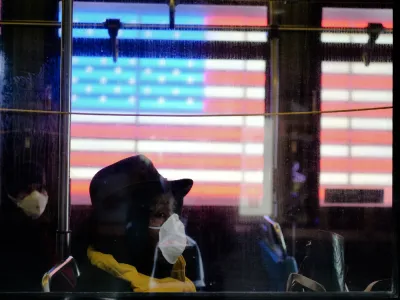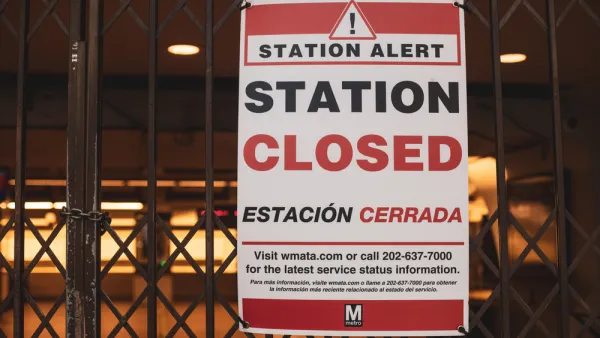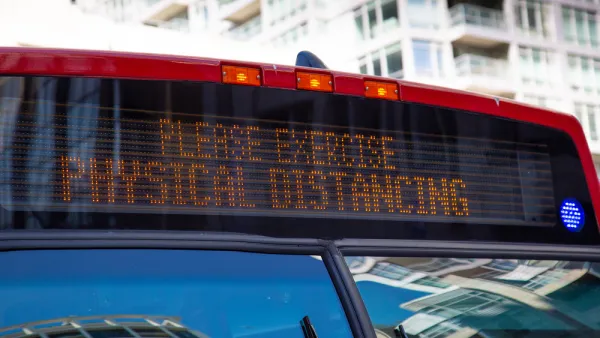After months of nothing but news of service cuts, plummeting ridership, and cratered budgets, a few U.S. transit agencies are now making plans to restore service with new social distancing guidelines in place.

Paul J. Wiedefeld, general manager and CEO of the Washington Metropolitan Area Transit Authority, writes for The Washington Post to explain that transit system's plans to reopen as the region slowly emerges from stay-at-home orders and some workers return to work.
Metro ridership has plummeted to historic lows and that’s a good thing — for now. Customers are making only essential trips to protect the health of everyone in the region. Planning for recovery from the covid-19 shutdown isn’t like reopening after a blizzard. This is not a “start your engines” moment. This principle guides our plans to implement phased recovery over the next 12 months.
The Metro system is currently only using half of its frontline employees, according to Wiedefeld, who claims the agency, working with its employee union, has worked rigorously to protect the health of employees during the public health crisis. Wiedefeld also states that the first job of the system's recovery plan will be to protect the health and safety of its workforce.
Second, the plan will consider customer expectations regarding masks, cleaning, and efforts to reduce crowding on high demand routes at peak times. "Our recovery plan anticipates that when regional leaders move to the first phases of reopening, trains will run every 20 minutes. The first and eighth cars, which have been closed to passengers, will reopen. Buses will continue to operate on Sunday routes and schedules."
Later on, depending on the timing of subsequent phases in Maryland, Virginia and the District, Metro "will begin to reopen stations, increase train frequency and operate more bus routes later this summer and into the fall," according to Wiedefeld.
More news coverage of the transit reopening plan for the D.C. region are included in an article by Jordan Pascale for WAMU. Seattle's King County Metro has also revealed its plans to begin restoring transit service with new considerations for social distancing and the health and safety of both riders and transit employees in place.
FULL STORY: How Metro plans to gradually return to full service

Analysis: Cybertruck Fatality Rate Far Exceeds That of Ford Pinto
The Tesla Cybertruck was recalled seven times last year.

National Parks Layoffs Will Cause Communities to Lose Billions
Thousands of essential park workers were laid off this week, just before the busy spring break season.

Retro-silient?: America’s First “Eco-burb,” The Woodlands Turns 50
A master-planned community north of Houston offers lessons on green infrastructure and resilient design, but falls short of its founder’s lofty affordability and walkability goals.

Test News Post 1
This is a summary

Analysis: Cybertruck Fatality Rate Far Exceeds That of Ford Pinto
The Tesla Cybertruck was recalled seven times last year.

Test News Headline 46
Test for the image on the front page.
Urban Design for Planners 1: Software Tools
This six-course series explores essential urban design concepts using open source software and equips planners with the tools they need to participate fully in the urban design process.
Planning for Universal Design
Learn the tools for implementing Universal Design in planning regulations.
EMC Planning Group, Inc.
Planetizen
Planetizen
Mpact (formerly Rail~Volution)
Great Falls Development Authority, Inc.
HUDs Office of Policy Development and Research
NYU Wagner Graduate School of Public Service



























